Lateral Medullary Syndrome Symptoms
Lateral medullary syndrome symptoms. Symptoms include difficulties with swallowing hoarseness dizziness nausea and vomiting rapid involuntary movements of the eyes nystagmus and problems with balance and gait coordination. LATERAL MEDULLARY SYNDROME LITERATURE REVIEW symptoms 75 of the time. This syndrome is most often due to vertebral artery occlusion or less commonly to posterior inferior cerebellar artery PICA occlusion.
What is lateral medullary syndrome. Wallenberg syndrome also known as lateral medullary syndrome or Wallenbergs syndrome is a condition that affects the nervous system. The non-sudden onset 25 of the time typically started with a headache vertigo dizziness and gait ataxia.
Lateral medullary syndrome is a term given to an ischemic stroke which is produced by infarction of a specific region of the brain the lateral medulla lying posterior to the inferior olivary nucleus. Traditionally lateral medullary syndrome was thought to be attributed to the occlusion of the posterior inferior cerebellar artery PICA. We conclude with therapy and prognoses.
This is most commonly due to occlusion of the intracranial portion of the vertebral artery followed by PICA and its branches 1-3. Lateral pontine syndrome. Ipsilateral paralysis of the upper and lower face lower motor neuron lesion.
Wallenbergs syndrome is a neurological condition caused by a stroke in the vertebral or posterior inferior cerebellar artery of the brain stem. Characteristics of medial medullary syndrome and lateral medullary syndrome considering the medullas topographical organization. The usual symptoms of lateral medullary infarction include vertigo dizziness nystagmus ataxia nausea and vomiting dysphagia and hiccups.
Lateral medullary syndrome also known as Wallenberg syndrome is a clinical syndrome caused by an acute ischemic infarct of the lateral medulla oblongata. Lateral Medullary Syndrome Wallenbergs syndrome is a lateral medullary infarction that causes vertigo ipsilateral paralysis of the soft palate larynx and pharynx dysphonia dysphagia ipsilateral facial numbness and loss of corneal reflexes ipsilateral Horners syndrome ipsilateral cerebellar asynergy and hypotonia. Patients present with nausea vomiting and vertigo.
Organization and Blood Supply of Medulla The medulla oblongata is the terminal segment of the brain stem which continues at the foramen magnum as the spinal cord. Lateral medullary syndrome is a stroke in the lateral medulla and is also known as Wallenberg.
Organization and Blood Supply of Medulla The medulla oblongata is the terminal segment of the brain stem which continues at the foramen magnum as the spinal cord.
The usual symptoms of lateral medullary infarction include vertigo dizziness nystagmus ataxia nausea and vomiting dysphagia and hiccups. Lateral medullary syndrome is a term given to an ischemic stroke which is produced by infarction of a specific region of the brain the lateral medulla lying posterior to the inferior olivary nucleus. What is lateral medullary syndrome. LATERAL MEDULLARY SYNDROME LITERATURE REVIEW symptoms 75 of the time. Its often caused by a stroke in the brain stem the. This is most commonly due to occlusion of the intracranial portion of the vertebral artery followed by PICA and its branches 1-3. Dysphagia is more profound in lateral medullary syndrome patients. The usual symptoms of lateral medullary infarction include vertigo dizziness nystagmus ataxia nausea and vomiting dysphagia and hiccups. Traditionally lateral medullary syndrome was thought to be attributed to the occlusion of the posterior inferior cerebellar artery PICA.
Wallenberg syndrome also known as lateral medullary syndrome or Wallenbergs syndrome is a condition that affects the nervous system. Ipsilateral paralysis of the upper and lower face lower motor neuron lesion. Lateral medullary syndrome is a stroke in the lateral medulla and is also known as Wallenberg. Lateral pontine syndrome. Characteristics of medial medullary syndrome and lateral medullary syndrome considering the medullas topographical organization. Lateral medullary syndrome is a term given to an ischemic stroke which is produced by infarction of a specific region of the brain the lateral medulla lying posterior to the inferior olivary nucleus. This syndrome is most often due to vertebral artery occlusion or less commonly to posterior inferior cerebellar artery PICA occlusion.
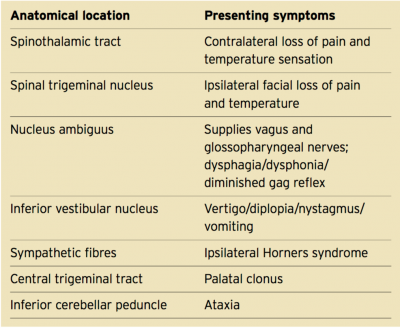




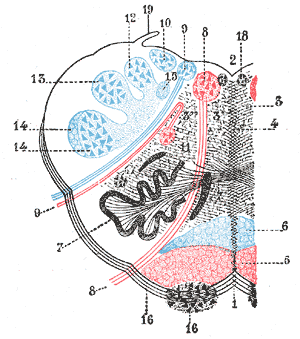
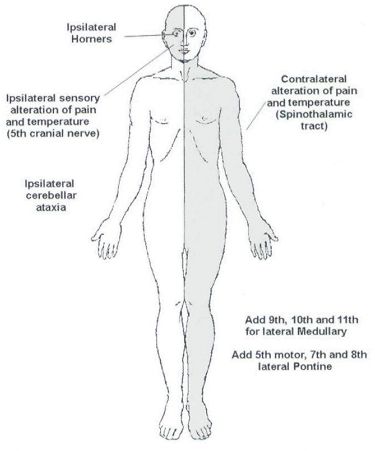
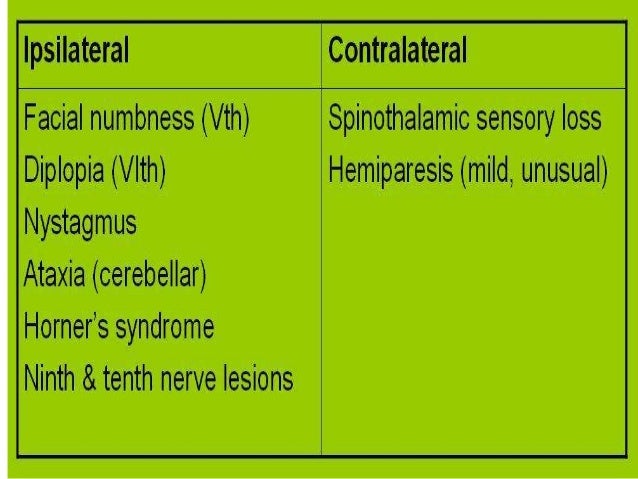



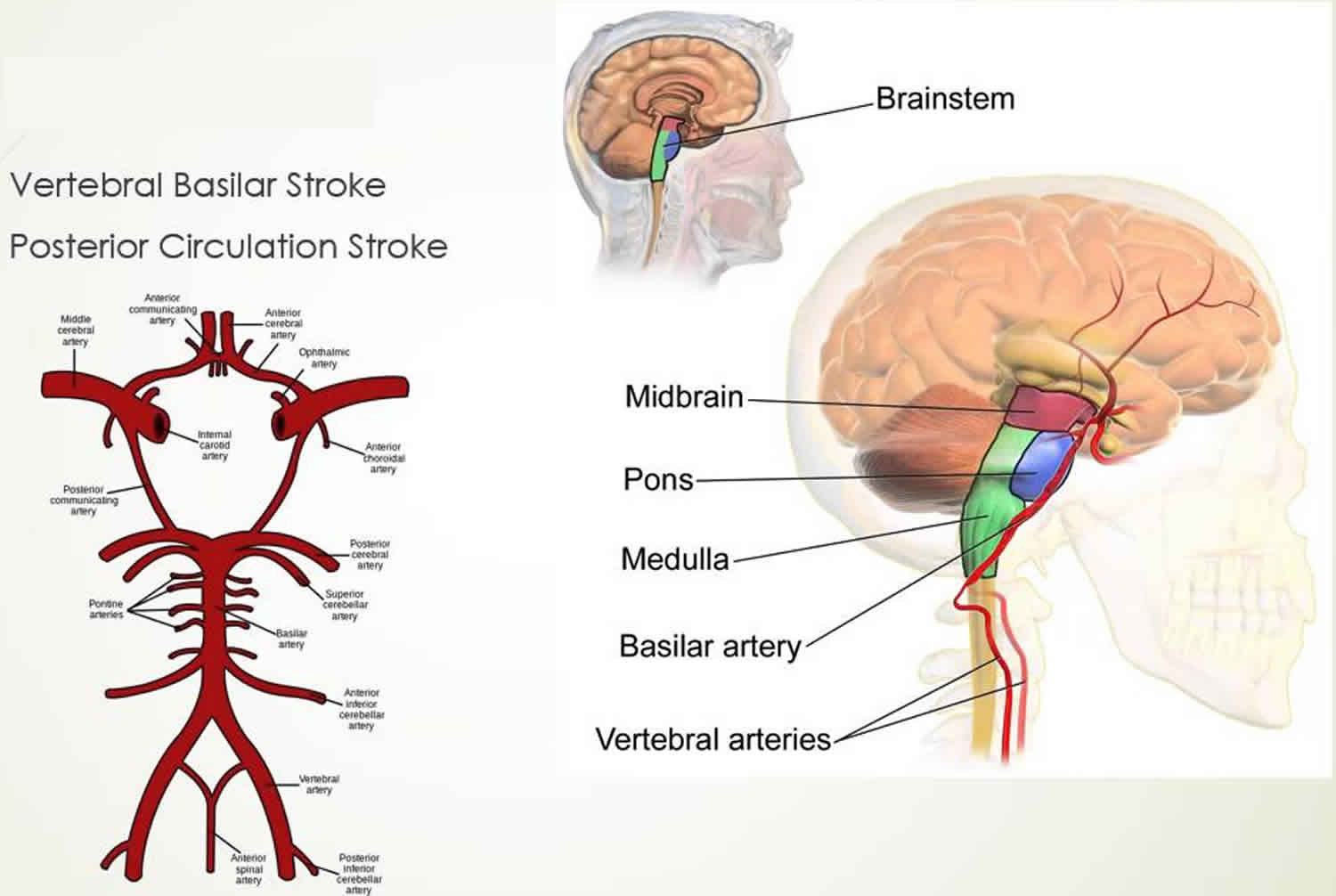
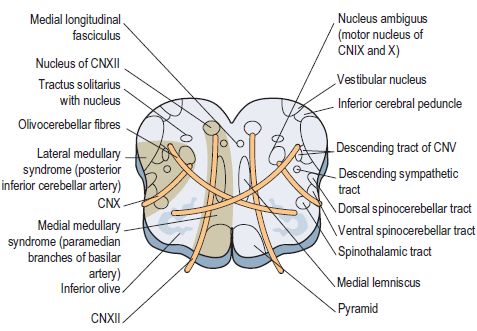






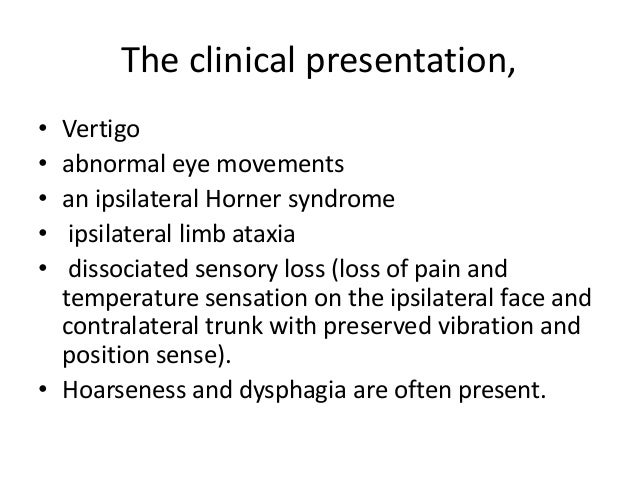










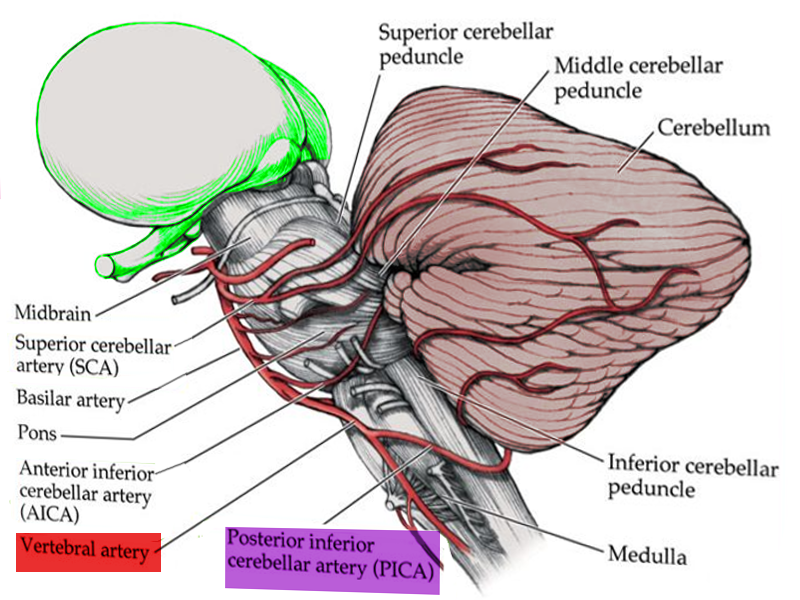



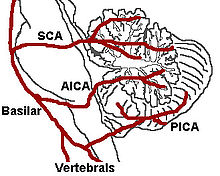






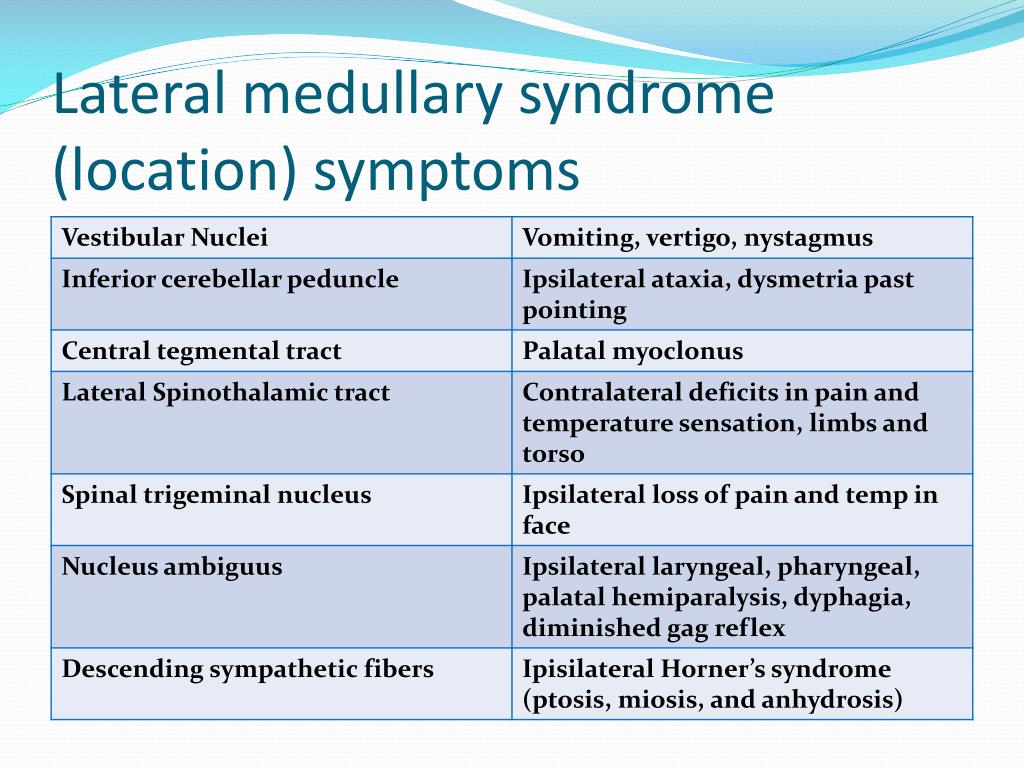

Post a Comment for "Lateral Medullary Syndrome Symptoms"